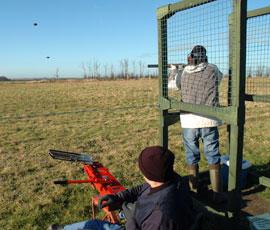Clay pigeon shooting posing a risk to OSR

The UK Seed Crushers and Oil Processors Association is warning growers of the risk clay pigeon shooting poses to rapeseed quality, with some crop exceeding EU limits for a key contaminant.
This year there have been several loads delivered to crush plants with extremely high PAH levels, costing UK crushers hundreds of thousands of pounds to deal with.
SCOPA investigations have indicated that these “spikes” in PAH levels have been caused by the shooting of clay pigeons over standing rape crops.
The association’s vice-chairman, Martin Farrow, says that although there are relatively few cases of high PAH levels, their effect is devastating. “The cost to UK crushers is huge, and as crushers we will not continue to bear the costs of this contamination.
“It is vital that all farmers show due diligence, and if they suspect their crop may be affected, they have it properly and rigorously analysed before it leaves the farm. This will be a lot cheaper than the consequence of delivering a load that contaminates the rapeseed oil during the extraction process.”
Crushers must comply with strict EU limits on PAHs in vegetable oil. Bitumen is a known source of PAHs and clay pigeons are generally made using bitumen as a binder.
The current advice for farmers is that clay pigeons should not be shot over a crop after 31 March or yellow bud stage, whichever is later.

